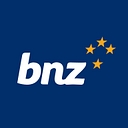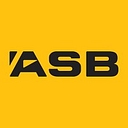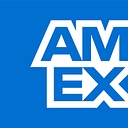Best Business Credit Cards NZ [2025 Guide]
📋 In This Guide
- Why Choose a Business Credit Card?
- Compare Business Credit Cards October 2025
- How to Choose the Right Card
- Eligibility & Application Requirements
- 5 Expert Strategies
- 7 Common Mistakes to Avoid
- Business vs Personal Cards
- Real Business Success Stories
- Frequently Asked Questions
⏱ 14 min read | Expert Analysis | Updated Monthly
Key Benefits of Business Credit Cards:
- Separate Business Expenses: Keep personal and business finances completely separate for tax time
- Multiple Employee Cards: Issue cards to staff with individual spending limits and controls
- Expense Management Tools: Detailed reporting, categorization, and accounting software integration
- Business Rewards Programs: Earn points on office supplies, travel, advertising, and more
- Higher Credit Limits: Access larger credit lines for business expenses and cash flow
- Build Business Credit: Establish a separate credit history for your company
💼 Get Business Card Offers
Be the first to know about new business credit card offers, bonus points promotions, and fee waivers
Join 3,200+ NZ business owners. Weekly updates. Unsubscribe anytime.
Why Choose a Business Credit Card?
Business credit cards offer specialized features designed for company expenses. Unlike personal cards, they provide detailed reporting for tax deductions, allow multiple employee cards with spending controls, and offer business-specific rewards on categories like office supplies, advertising, and travel.
The Tax Advantage: Keeping business expenses separate makes tax time significantly easier. Instead of sorting through mixed personal and business transactions, you'll have a dedicated record of all business spending. Annual fees are typically tax-deductible as a business expense.
Cash Flow Management: Business cards often offer 55 interest-free days, helping you manage cash flow by paying for expenses today and settling the bill after you've been paid by clients. Some cards also offer extended payment terms for large purchases.
Business Credit Cards from Major NZ Banks





Compare Business Credit Cards (October 2025)
| Bank | Card | Annual Fee | Interest Rate | Employee Cards | Key Features | Best For |
|---|---|---|---|---|---|---|
 | BNZ Advantage Business Platinum | $125 | 16.95% | Free (unlimited) |
| Best Overall |
 | ANZ Business One Visa | $75 | 18.95% | Free (up to 5) |
| Low Fee |
 | ASB Business Platinum Mastercard | $95 | 17.95% | Free (unlimited) |
| Rewards |
 | Westpac Business Mastercard | $85 | 18.50% | $10 each |
| Travel |
 | American Express Business Gold | $195 | 20.99% | Free (unlimited) |
| Premium |
💡 Expert Tip: The "best" business card depends on your spending patterns. If you spend $5,000+ monthly on advertising or travel, a rewards card pays for itself. For lower spending, choose a low-fee card like ANZ Business One.
How to Choose the Right Business Credit Card
Step 1: Calculate Your Monthly Business Spending
Before choosing a card, analyze your typical monthly business expenses. Break them into categories:
- Office Supplies & Equipment: Computers, stationery, software subscriptions
- Advertising & Marketing: Google Ads, Facebook ads, promotional materials
- Travel & Accommodation: Flights, hotels, rental cars, fuel
- Professional Services: Accounting, legal, consulting fees
- Utilities & Communications: Internet, phone, cloud services
🧮 Quick Calculation: If you spend $10,000/month on business expenses, a rewards card earning 1 point per dollar gives you 120,000 points per year. That's typically worth $600-$1,200 in value, easily covering a $125 annual fee.
Step 2: Decide Between Rewards vs Low-Rate
Choose a Rewards Card if:
- You pay the full balance every month (avoid interest charges)
- Monthly spending exceeds $3,000
- You frequently travel for business
- You want to earn points on advertising spend
Choose a Low-Rate Card if:
- You occasionally carry a balance month-to-month
- Monthly spending is under $2,000
- You prefer simplicity over rewards optimization
- Cash flow is unpredictable (seasonal business)
Step 3: Consider Employee Card Needs
If you have employees who need to make purchases, look for cards offering:
- Free Employee Cards: BNZ and ASB offer unlimited free additional cards
- Individual Spending Limits: Set different limits for different staff members
- Real-Time Alerts: Get notified immediately when employees make purchases
- Detailed Reporting: See exactly who spent what, when, and where
Step 4: Check Accounting Integration
Modern business cards integrate with accounting software, saving hours of manual data entry:
- Xero: BNZ Advantage Business offers direct integration
- MYOB: Supported by most NZ business cards
- QuickBooks: Compatible with Visa and Mastercard business cards
- CSV Export: All cards allow transaction export for manual import
Eligibility & Application Requirements
ANZ Business One Visa - What You'll Need
- Business Registration: NZBN (New Zealand Business Number) or proof of sole trader status
- Trading History: Minimum 6 months trading (12 months preferred)
- Annual Revenue: $30,000+ annual turnover
- Financial Docs: Last 2 years of financial statements or tax returns
- Personal Guarantee: Business owner's personal credit check required
- Existing ANZ Customer: Having a business account helps but not required
BNZ Advantage Business Platinum - Requirements
- Business Type: Limited company, partnership, or sole trader
- Trading Period: 12 months minimum trading history
- Revenue Threshold: $50,000+ annual turnover recommended
- Credit History: Clean business and personal credit record
- Documentation: Business plan for new companies, financials for established
- GST Registration: Preferred but not mandatory
ASB Business Platinum - Application Process
- Minimum Turnover: $40,000+ annual business revenue
- Business Structure: Any registered business structure accepted
- Financial Records: Recent bank statements (3-6 months)
- ID Verification: Driver license and proof of address for all directors
- Personal Income: May consider personal income for new businesses
- Application Time: Typically 3-5 business days for approval
⚠️ Important: Even with a "business" credit card, most NZ banks require a personal guarantee from the business owner. This means you're personally liable for all charges, including those made by employees. Your personal credit score will be checked during application.
5 Expert Strategies for Business Credit Cards
1. Maximize Points on High-Spend Categories
Don't treat all expenses equally. Focus rewards earning on high-volume categories where you have the most spending.
Example Strategy: A digital marketing agency spends $8,000/month on Google and Facebook ads. By using ASB Business Platinum (1 point per $1), they earn 96,000 points annually. That's $480-$960 in value, making the $95 annual fee trivial.
💰 Potential Annual Benefit: $400-$1,000+ depending on spending
2. Use Employee Cards for Complete Expense Tracking
Instead of reimbursing employees for business purchases, issue them company cards. This eliminates reimbursement paperwork and provides automatic expense categorization.
Real-World Application: A construction company with 5 project managers issues each a BNZ Business card with a $1,000 monthly limit. All fuel, materials, and supplies are automatically tracked by project. At tax time, they have complete documentation without a single expense report.
⏱️ Time Saved: 10-15 hours per month on expense admin
3. Time Major Purchases for Interest-Free Periods
Most business cards offer 55 interest-free days. Time large purchases (equipment, inventory, advertising campaigns) for right after your statement date to maximize free financing.
Strategic Timing: If your statement closes on the 15th, make a $10,000 inventory purchase on the 16th. You won't pay until the 10th of the following month - that's 55 days of free credit. The $10,000 stays in your business account earning interest.
💵 Free Float Value: $50-$150 per large purchase
4. Integrate with Accounting Software for Tax Time
Manual expense categorization is error-prone and time-consuming. Use cards that integrate directly with Xero or MYOB for automatic transaction import and categorization.
Efficiency Gain: A small consultancy firm switched to BNZ Advantage Business with Xero integration. Previously spent 3 hours monthly categorizing transactions. Now it's automatic - transactions sync daily and are pre-categorized based on merchant.
💼 Annual Accounting Cost Saved: $500-$1,500
5. Build Business Credit Separate from Personal
Using a business credit card and paying on time builds your company's credit history. This helps when you need larger business loans, equipment financing, or supplier credit terms.
Long-Term Strategy: A startup web design agency used an ANZ Business One card from day one. After 24 months of perfect payment history, they qualified for a $50,000 business line of credit for expansion - something they couldn't get with personal credit alone.
🎯 Future Benefit: Access to better financing terms and higher credit limits
7 Common Business Credit Card Mistakes (And How to Avoid Them)
1. Mixing Personal and Business Expenses
The Problem: Using your business card for personal purchases (or vice versa) creates a nightmare at tax time. IRD requires clear separation between business and personal expenses.
The Cost: Potential audit red flags, disallowed deductions, and hours of sorting transactions during tax season.
The Solution: Strict discipline - business card for business only. No exceptions, not even "just this once." If you accidentally use the wrong card, immediately transfer the amount and document it.
2. Not Setting Employee Spending Limits
The Problem: Issuing employee cards without individual limits. An employee books a $5,000 last-minute flight when you expected them to spend $500.
The Cost: Unexpected charges, budget overruns, and difficult conversations with staff about overspending.
The Solution: Set appropriate spending limits based on each employee's role. Sales manager: $2,000/month. Office admin: $500/month. Junior staff: $200/month. Review and adjust quarterly.
3. Choosing Rewards Cards When You Carry Balances
The Problem: Getting a rewards card with 18.95% interest, then carrying a $5,000 balance month-to-month because cash flow is tight.
The Cost: Annual interest: $947. Even if you earn 5,000 points ($25-$50 value), you've lost $900+ to interest.
The Solution: Be honest about payment habits. If you carry balances, get a low-rate card like ASB Visa Light (12.95%). The 6% interest savings on a $5,000 balance is $300/year - far more than rewards points.
4. Forgetting to Review Employee Transactions
The Problem: Issuing employee cards and never checking what they're buying. An employee has been using their business card for personal lunches for 6 months.
The Cost: Misuse of funds, potential tax issues, and awkward fraud conversations. Average cost: $200-$500/month in inappropriate charges.
The Solution: Set up weekly or monthly transaction reviews. Most business cards offer email alerts for purchases over a certain amount. ASB and BNZ both offer real-time purchase notifications via mobile app.
5. Ignoring Annual Fees vs Value Calculation
The Problem: Paying a $195 Amex Business Gold fee when your monthly spending is only $1,000. You're earning $120 in rewards but paying $195 - a net loss of $75.
The Cost: Negative return on the card relationship - you'd be better off with a no-fee card.
The Solution: Annual review. Calculate: (Annual Points Value) - (Annual Fee) - (Interest Paid) = Net Benefit. If negative, downgrade to a lower-fee card.
6. Not Using Accounting Integration
The Problem: Manually entering every credit card transaction into your accounting system. Takes 2-3 hours monthly and introduces data entry errors.
The Cost: 30 hours per year at $50/hour = $1,500 in wasted admin time, plus accounting errors requiring corrections.
The Solution: Choose a card with Xero/MYOB integration (like BNZ Advantage Business). Set up bank feeds once, save hours every month. Most integration is free with the card.
7. Missing Foreign Transaction Fee Opportunities
The Problem: Using your regular business card to pay for Google Ads, AWS, or other USD-billed services. Each transaction has a 2-3% foreign transaction fee.
The Cost: Spending $3,000/month on Google Ads in USD = $90/month ($1,080/year) in foreign transaction fees.
The Solution: For businesses with regular foreign currency expenses, consider a card with no foreign transaction fees or use a service like Wise Business for USD payments. Could save $1,000+ annually.
Business vs Personal Credit Cards: What's the Difference?
| Feature | Business Credit Card | Personal Credit Card |
|---|---|---|
| Expense Separation | ✓ Completely separate business expenses | ✗ Mixed with personal spending |
| Tax Deductibility | ✓ Annual fee is tax deductible | ✗ Fee not deductible |
| Employee Cards | ✓ Unlimited cards with spending controls | ~ Family cards only (no controls) |
| Credit Limit | ✓ Higher limits ($20,000-$100,000+) | ~ Lower limits ($5,000-$30,000) |
| Accounting Integration | ✓ Xero, MYOB, QuickBooks integration | ✗ Manual export only |
| Expense Reporting | ✓ Detailed by employee, category, project | ~ Basic transaction list only |
| Business Credit Building | ✓ Builds separate business credit history | ✗ Only affects personal credit |
| Liability Structure | ~ Personal guarantee usually required | ✓ Individual liability only |
| Rewards Categories | ✓ Business spending (ads, office, travel) | ~ Personal categories (groceries, fuel) |
| Application Requirements | ✗ Business docs, financials, NZBN required | ✓ Simple - just personal income proof |
💡 Bottom Line: Even sole traders should consider a business credit card if monthly business spending exceeds $1,000. The expense separation alone saves hours at tax time, and the annual fee is tax deductible as a business expense.
Calculate Business Rewards
Rewards Calculator
Annual Rewards Value
Total Rewards
$240
Net Rewards
$90
Effective Rate
0.38%
Tips
- • Higher spend justifies higher annual fees
- • Consider bonus point offers
- • Check point redemption values
Real Business Success Stories
Sarah's Marketing Agency Saves $2,400 Annually
Business: Digital marketing agency with 4 staff members
The Situation: Sarah's agency was spending $12,000/month on Google and Facebook ads for clients, plus $2,000 on software subscriptions - all on her personal ANZ Visa with no rewards.
The Change: Switched to ASB Business Platinum Mastercard earning 1 point per dollar. Issued employee cards to 3 account managers for client meetings and expenses.
The Results:
- 168,000 rewards points earned annually (14,000/month × 12)
- Redeemed for $840 in gift cards + 2 domestic flights worth $600
- Saved 12 hours/month on expense reports (now automated via Xero)
- Complete expense visibility - knew exactly which client projects were profitable
💰 Total Annual Benefit: $2,400 (rewards + time saved worth $960)
Mike's Construction Company Improves Cash Flow
Business: Small residential construction company with 6 site managers
The Problem: Site managers buying materials with personal cards, then submitting expense reports. Reimbursement took 2 weeks, causing staff frustration. No visibility into project costs until month-end.
The Solution: BNZ Advantage Business Platinum with 6 free employee cards. Each site manager got a card with $3,000 monthly limit tied to their project code.
The Impact:
- Eliminated employee reimbursements - happier staff
- Real-time project cost tracking via Xero integration
- Caught materials theft - one card showed $800 of personal purchases (employee terminated)
- Used 55 interest-free days to better manage cash flow during winter slow season
- Travel insurance saved $1,200 when site manager's flight was cancelled
🎯 Business Transformation: Better cost control, happier staff, prevented fraud worth $800+
Key Features to Consider
💼 Expense Management
- Detailed Statements: Transaction data including merchant category, employee name, and date
- Spending Categories: Auto-categorization by expense type for tax purposes
- Employee Cards: Issue multiple cards with individual controls and limits
- Spending Limits: Set daily/monthly limits per card or employee
- Receipt Management: Mobile apps for photo receipt capture and matching
🎁 Business Benefits
- Accounting Integration: Direct sync with Xero, MYOB, QuickBooks
- Business Insurance: Purchase protection, extended warranty, rental car coverage
- Travel Perks: Airport lounge access, travel insurance, concierge service
- Purchase Protection: Insurance for business equipment and purchases
- Fraud Monitoring: Real-time alerts and business-grade security
Business Card Tips
- Set Clear Spending Policies: Create written guidelines for what employees can and cannot purchase
- Monitor Employee Cards Weekly: Don't wait until month-end - review transactions weekly via mobile app
- Use Expense Categories: Properly categorize transactions for easier tax deductions
- Track Tax Deductions: All business expenses are potentially deductible - keep good records
- Review Statements Monthly: Look for unauthorized charges, incorrect merchant categories, or fraud
- Leverage Interest-Free Days: Time large purchases for maximum float period
- Annual Card Review: Every year, calculate if rewards earned exceed fees paid
Related Business Guides
Popular Pages
Ready to Choose Your Business Credit Card?
Compare all NZ business credit cards side-by-side to find the perfect match for your company.
Compare Business Cards Now →